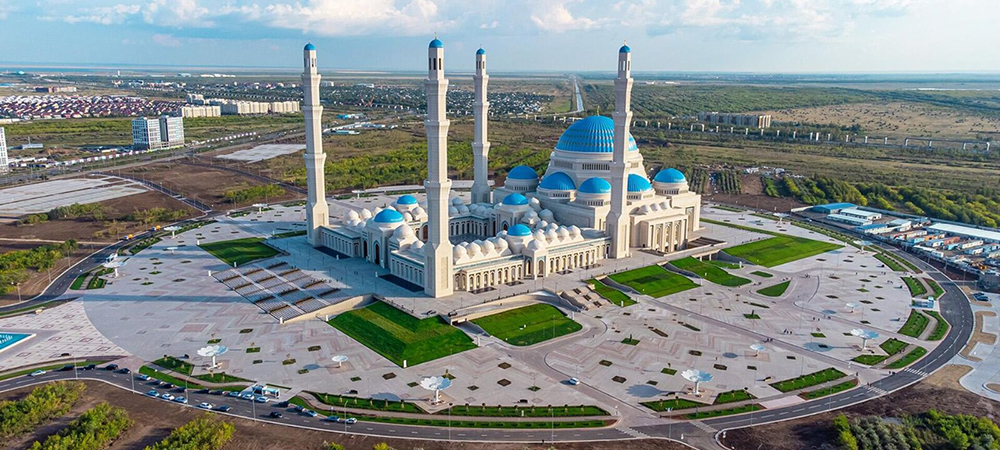Thermal heating solution provided by Danfoss expected to achieve US$55,000 annual savings.
The Astana Grand Mosque, the biggest mosque in Central Asia, has taken a bold step in lowering CO2 emissions and fostering a more sustainable future with the installation of a new thermal heating solution from Danfoss which reduces heat consumption by 17.5%.
Global engineering group Danfoss helped to provide the Astana Grand Mosque with an energy efficient heating solution to ensure the comfort of worshipers during the harsh Kazakh winters when temperatures can reach -50 degrees Celsius.
The new thermal heating system solution emits less CO2 emissions, fostering a more sustainable future, and it is expected to provide an annual savings on heating costs of US$55,000. With this saving, the heat solution will have paid for itself after eight years.
Ziad Al Bawaliz, Regional President, Turkey, Middle East and Africa Region, Danfoss, said: “Due to its large size, the Astana Grand Mosque faces unique heating challenges during the harsh winter. We have been able to provide a solution that effectively distributes heat throughout the expansive structure while also reducing energy consumption.”
The Astana Grand Mosque is the biggest mosque in Central Asia, and one of the largest in the world. The main dome of the mosque is the largest of its kind in the world, at a height of almost 83.2 meters and with a diameter of 62 meters. The surrounding four minarets are 130 meters and are made of five parts to symbolize the five pillars of Islam – faith, prayer, fasting, zakat and pilgrimage.
Utilizing precise indoor temperature control, the Danfoss heating solution is also able to lower the heating consumption even when the mosque is empty, further enhancing energy efficiency while simultaneously maintaining ideal conditions in the building.
“Buildings are the second largest source of energy-related carbon emissions globally and in urban areas, they can often account for over 50% of emissions,” Ziad Al Bawaliz added. “Reducing emissions from buildings is critical if we are to meet climate goals, and this project proves it’s possible to foster sustainability without increasing costs.”
Altun Koksal, Director at Stroymep, the engineering firm which commissioned Danfoss for the Astana Mosque project, said: “Utilizing energy-saving technologies was paramount for this project with new laws in the Republic of Kazakhstan now requiring buildings to save energy. The practical application of these Danfoss technologies made it possible to make the space more comfortable for visitors, minimize the cost of heating and improve the reliability and safety of the heat supply system.”


